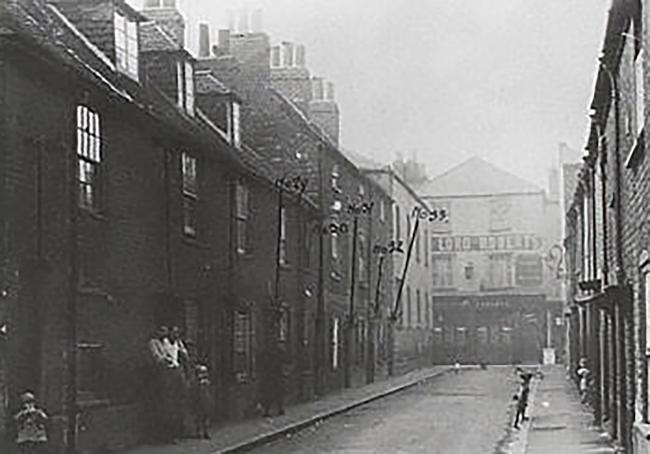ONE was nine, two were ten, and the fourth 14 - all in the eyes of the law eligible for jail for petty thieving.
Such was the unforgiving justice of mid-Victorian England.
The first case centred on the youngest, George Dunn, whose stunted and neglected appearance exemplified his ne'er do well background.
He had become so accustomed to crime that on May 8, 1867, he was making his second appearance before the magistrates that week.
Two days earlier, he had admitted stealing some sweets with his sister and given a stern warning about the consequences of another theft.
It evidently did not register and he had been arrested for taking toys which had been temporarily left on the counter of Mrs Harvey's shop in Above Bar. However, it was not her but a neighbour of the Dunn family who realised he had been up to no good once more.
Mrs Primmer by chance spotted him sitting on a doorstop near the shop and realising he had been seen, Dunn stuffed the toys into a box and ran off down Pound Tree Lane. She at once notified Mrs Harvey and a check of the counter revealed the obvious.
Dunn naturally pleaded guilty and sitting in the dock heard his mother explain how he had disobeyed her.
"I set him out for two pennyworth of cuttings at the butchers in the morning but saw no sign of him until twelve o'clock last night. I sent out my little girl to look for him and I did not find her until last night."
Chairman J Bard reminded Dunn of the previous leniency afforded to him.
"Warnings and cautions have been lost on you," he said, jailing the youngster for not just two months but also with hard labour.
However, he condemned his mother for leading him into his bad ways: "My regret is that I cannot send her with you."
Prison also awaited another juvenile that day.
Thomas Holkham was 14 and charged with stealing 75 copies of the Hampshire Independent, tied up in a parcel by staff member J J Plowman who had placed them in the front window for them to be collected at 3.30am and taken to Bitterne but realised they were missing some 90 minutes later. Holkham had often gone to the premises early to obtain papers at a trade discount but that morning, Plowman did not see him until 5.30am when he observed him standing at the corner of Hanover Buildings with a bundle of papers under his arm.
Suspecting them to be the missing issues, he approached Holkham who promptly took to his heels, Plowman giving chase through York Buildings, East Street, Back of the Walls into Bell Street where he lost sight of him.

In due course, Halkham met newsboy Thomas Miller who he persuaded to buy a dozen papers for 1s 3d - 3d less than the usual trade price.
"At first I refused to buy them saying I was going to the office to get my own," he told magistrates. "But he told me he had a lot left which he could not sell and offered to me at a cheaper rate."
Pc Pearce was patrolling Bridge Street when he was approached by a woman carrying several papers, telling him: "I picked them up in Bell Street and another woman has also found some more there."
Pearce headed to Bell Street where he met Plowman who informed him of the robbery, and they were going to the Independent's office when by chance encountered the juvenile in York Street.
Holkham was to admit on arrest it was not the first he had stolen the papers - he had done so three times before.
His father, highly respected in the town, was shocked and saddened at his son's misdemeanour.
"I had no idea he was doing anything wrong and believe he was made to do it by other boys to whom he sold papers at a cheaper rate."
Despite pleas for leniency, the Bench still jailed Holkham for 21 days.
Just days earlier, magistrates heard Inspector Ralls brand Emma Payne as "the worst girl of her age in the town."
She was just 10 and making yet another appearance in court for stealing, this time taking a packet of biscuits from the shop of grocer Mr Hatch in Bridge Street. Payne was not acting alone, having cajoled another girl of similar age into joining her.
While the other distracted staff, Payne slipped the biscuits from the counter but the theft had been witnessed by a boy and led to a chase in which she dropped the packet and both being caught.
Both girls blamed each other as being the principal but magistrates did not differentiate in punishment, both received 14 days with hard labour.






Comments: Our rules
We want our comments to be a lively and valuable part of our community - a place where readers can debate and engage with the most important local issues. The ability to comment on our stories is a privilege, not a right, however, and that privilege may be withdrawn if it is abused or misused.
Please report any comments that break our rules.
Read the rules here